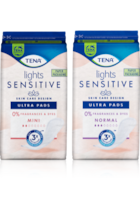Almost half of women say that they were unprepared for the menopause.
Most of us don’t even realize when our own mums, aunties or mother figures go through it. Our many, varied experiences are brushed under the carpet by shame and indifference. Let’s change that for good, by asking questions and listening properly to the answers.





















